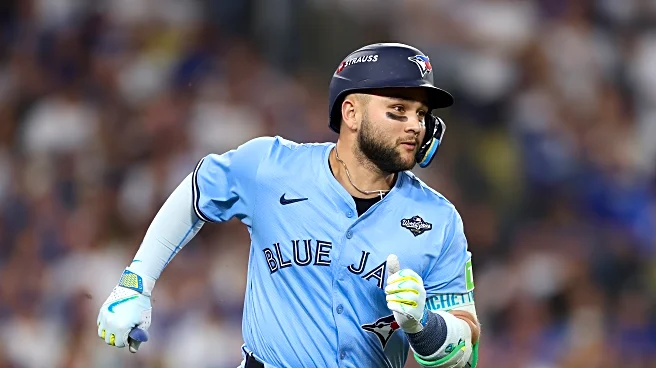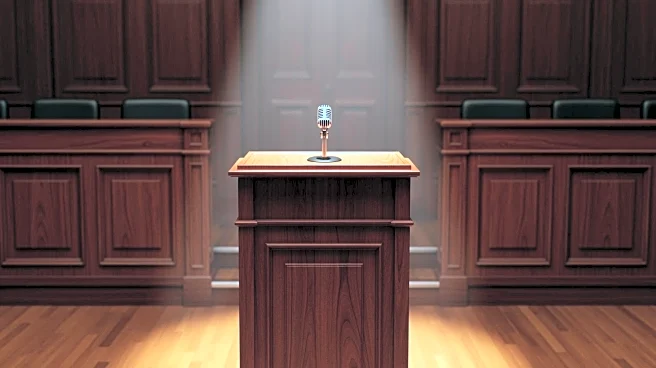Free agency has officially begun, and the Royals certainly have clear needs they will need to address, particularly in the outfield. While the Royals sound more willing to explore the trade path than a free
agent market that is thin in outfielders, they have also shown to be flexible and adapt to the market. Last winter, they avoided the overheated free agent market in December, but showed interest when the prices dropped for outfielders Anthony Santander and Jurickson Profar. Ultimately, they weren’t willing to meet the price to land those players, instead pivoting and signing reliever Carlos Estévez.
The Royals could again wait for the market to drop, but one consideration will be the Qualifying Offer. The Qualifying Offer is a one-year offer made by the team of a departing free agent, equal to the mean salary of the 125 MLB top-paid players, which equals $22.05 million this year. It allows a team losing a free agent to gain draft-pick compensation while requiring the signing club to forfeit a pick. MLB has tied draft-pick compensation to free agency since the system’s inception, originally as a check on rising salaries, though today’s penalties are far less restrictive.
The compensation for losing a free agent, and the penalties for signing a free agent differ depending on whether you are a “Competitive Balance Tax payor” (in other words, a large market club), “Revenue-sharing recipient” (small market club), or other club.
Competitive Balance Tax payors: Boston Red Sox, Houston Astros, Los Angeles Dodgers, New York Mets, New York Yankees, Philadelphia Phillies, San Diego Padres, Texas Rangers, Toronto Blue Jays
Revenue-sharing recipients: Arizona Diamondbacks, Athletics, Baltimore Orioles, Cincinnati Reds, Cleveland Guardians, Colorado Rockies, Detroit Tigers, Kansas City Royals, Miami Marlins, Milwaukee Brewers, Minnesota Twins, Pittsburgh Pirates, Seattle Mariners, St. Louis Cardinals, Tampa Bay Rays
All other teams: Atlanta Braves, Chicago Cubs, Chicago White Sox, Los Angeles Angels, San Francisco Giants, Washington Nationals
For teams losing a free agent, the following draft picks will be awarded:
Competitive Balance Tax payors: A pick after the fourth round
Revenue-sharing recipients: A pick after the first round if the player signs for more than $50 million, or after Competitive Balance Round B (following the second round) if the player signs for less.
Other clubs: A pick after Competitive Balance Round B
For teams signing a free agent, the following draft picks will be forfeited:
Competitive Balance Tax payors: The second- and fifth-highest selections (regardless of round), as well as $1 million from their international bonus pool. If such a team signs multiple qualified free agents, it will forfeit its third- and sixth-highest picks as well.
Revenue-sharing recipients: The third-highest selection (regardless of round). If a team signs two qualified free agents, it will also forfeit its fourth-highest pick.
Other clubs: The second-highest selection, as well as $500,000 from their international bonus pool. If one of these teams signs two qualified free agents, it will also forfeit its third-highest pick.
Because no Royals received a Qualifying Offer, the only issue is whether they sign a free agent who declined one. Signing such a free agent would require forfeiting their third-highest selection in the 2026 draft. In that draft, the Royals will have a first-round pick (with the order to be determined by the draft lottery), and a Competitive Balance Round A pick after the first round. So that means their third-highest selection will be in the second round.
Thirteen players were made a Qualifying Offer:
- Bo Bichette, shortstop
- Dylan Cease, starting pitcher
- Edwin Díaz, relief pitcher
- Zac Gallen, starting pitcher
- Trent Grisham, outfielder
- Shōta Imanaga, starting pitcher
- Michael King, starting pitcher
- Kyle Schwarber, designated hitter
- Ranger Suárez, starting pitcher
- Gleyber Torres, second baseman
- Kyle Tucker, outfielder
- Framber Valdez, starting pitcher
- Brandon Woodruff, starting pitcher
They have until November 18 to accept. Grisham, Imanaga, Torres, and Woodruff may be tempted to accept, but the rest are expected to decline.
Tucker is the best free agent available, and likely out of reach for the Royals. Bichette and Torres could each fill a need for a more offense-minded player at second base for the Royals, while Grisham could help them get more production from the outfield. But the Royals have a very thin farm system, ranked #25 by MLB Pipeline, #27 by ESPN, and #28 by Fangraphs. The team is in a “win-now” mode, but a small-market team must always be cognizant of its pipeline of talent.
Is it worth forfeiting a pick to sign one of these free agents?









